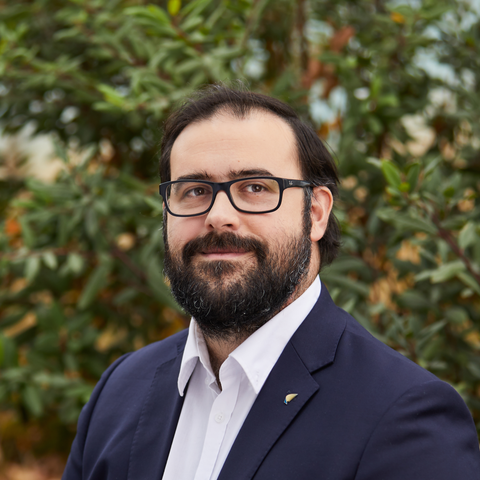Mar 28, 2023
The Faculty of Computer Science welcomes Prof. Roberto Calandra as Chair of Explainable Artificial Intelligence.
Italian-born Roberto Calandra has been active in the fields of machine learning and robotics not only in his home country but also in Finland, Great Britain (Cambridge) and the USA. In 2009, he obtained the B.Sc. in Computer Science Engineering from Universit`a degli Studi di Palermo, and in 2011, the M.Sc. in Machine Learning and Data Mining from Aalto University in Finland. In 2016, he received his Ph.D. degree in Bayesian Modeling for Optimization and Control in Robotics from the Technische Universität Darmstadt, Germany, followed by a postdoctoral research fellowship at the University of California at Berkeley. From 2018 to 2023, he worked as a research scientist at Meta AI (formerly Facebook AI Research) in the US. Calandra is the founder of the Robotic Lab in Menlo Park (now part of Embodied AI).
We are therefore very pleased that he has chosen the Dresden Faculty of Computer Science for his further research: "I am excited to join the Faculty of Computer Science and the Centre for Tactile Internet with Human-in-the-Loop (CeTI), where I plan to contribute my expertise in machine learning, reinforcement learning, robotics and touch sensing. I also plan to teach courses in machine learning for robotics and tactile sensing as part of the Software Engineering for Robotics master's program." Prof. Roberto Calandra summarizes his next plans. "In addition, I look forward to collaborating with many great colleagues from different fields at TU Dresden and the National Center for Tumor Diseases."
The newly established professorship "Explainable Artificial Intelligence" supports the field of machine learning and plays a central role in the Cluster of Excellence CeTI. The research aims at improving collaboration between humans and machines in real, virtual and remote environments. The professorship will therefore contribute in particular to analyzing models learned using machine learning methods such as Deep Learning, to making statements and decisions made using these models explainable, and to developing new methods of explainability in machine learning.
His hobby of scuba diving will be somewhat difficult to implement in Dresden - at least the diving areas offer different insights. Hopefully, there will be enough time for his family and cooking despite everything new.
We wish Prof. Calandra a good start and all the best for his plans.

